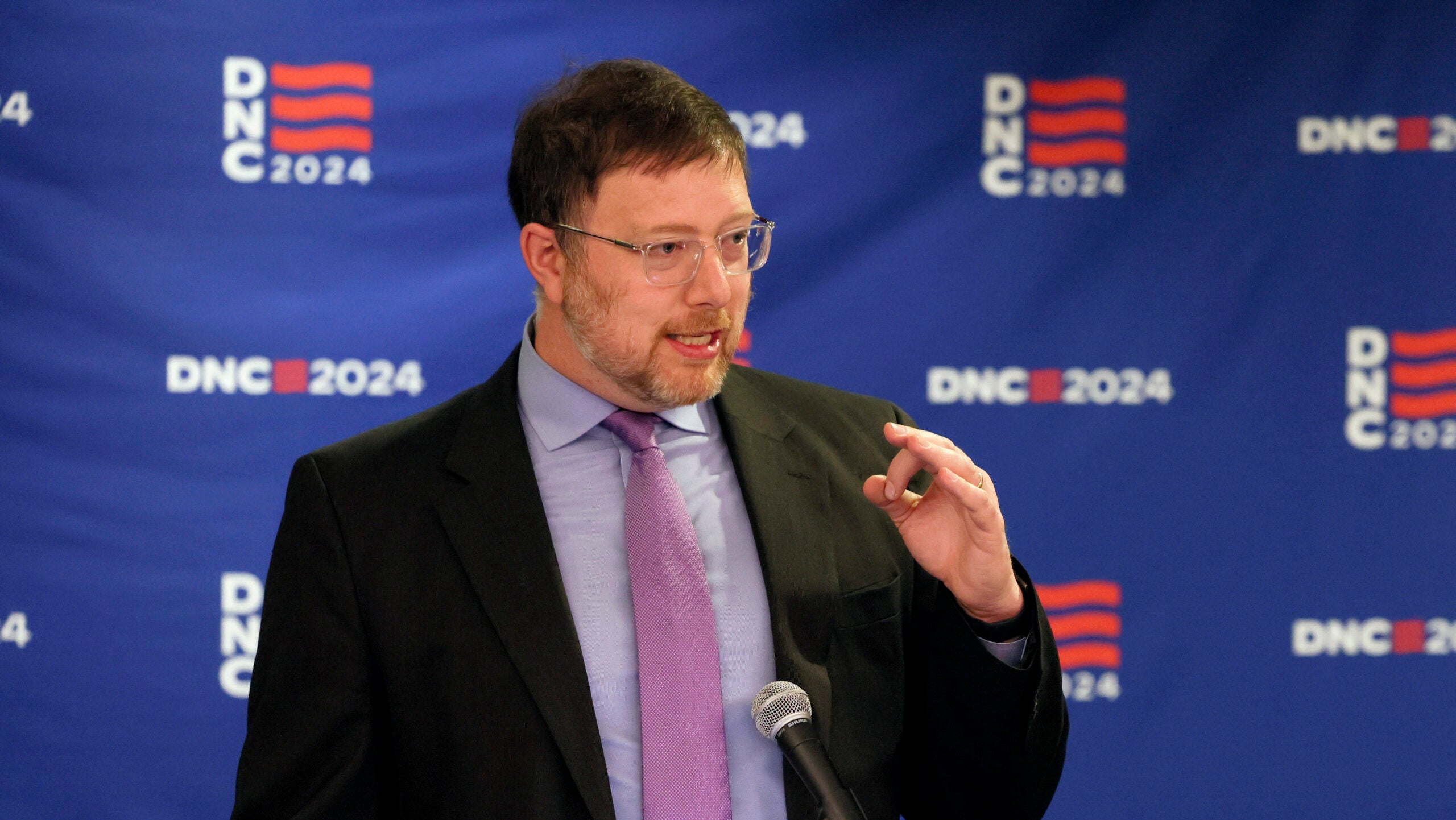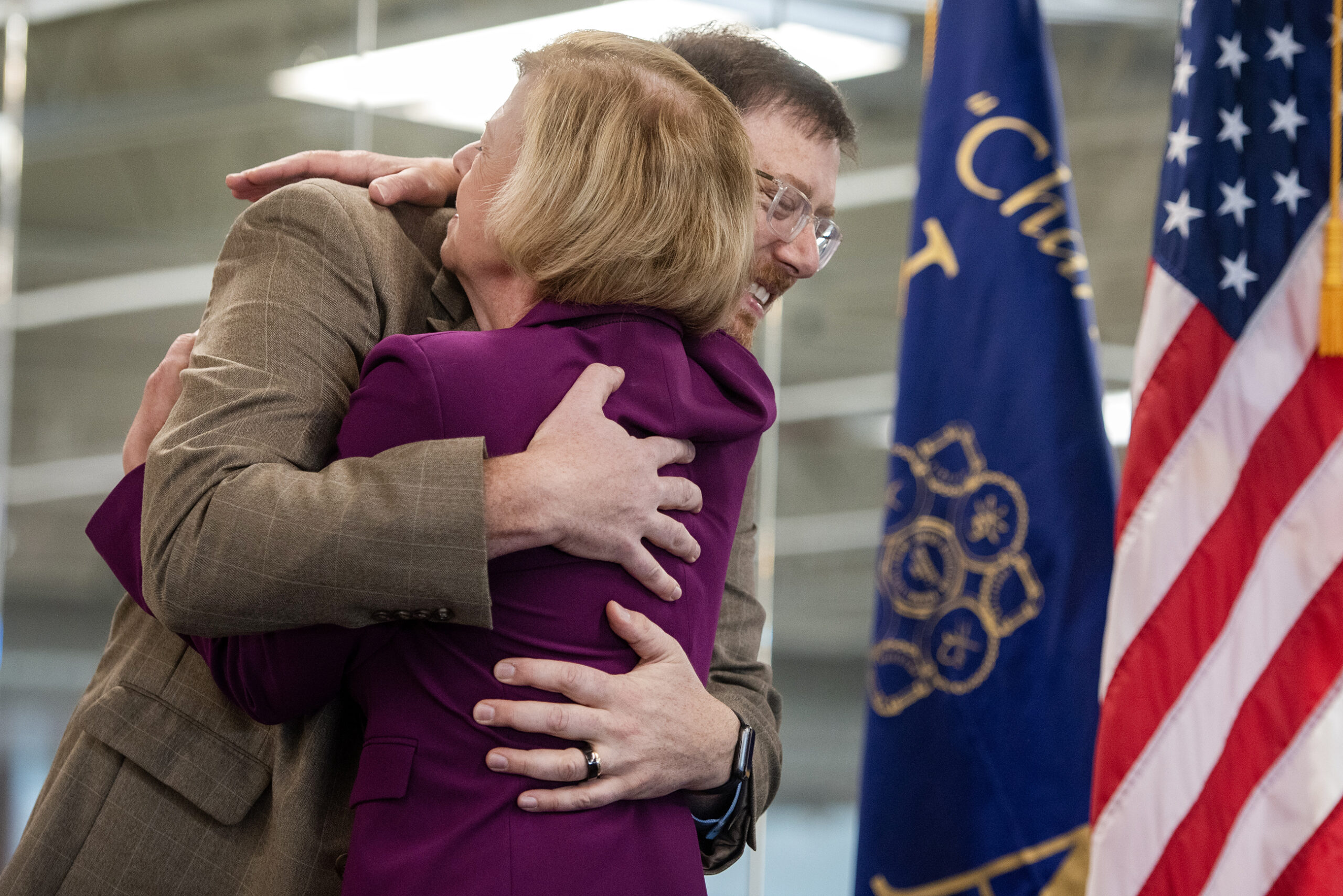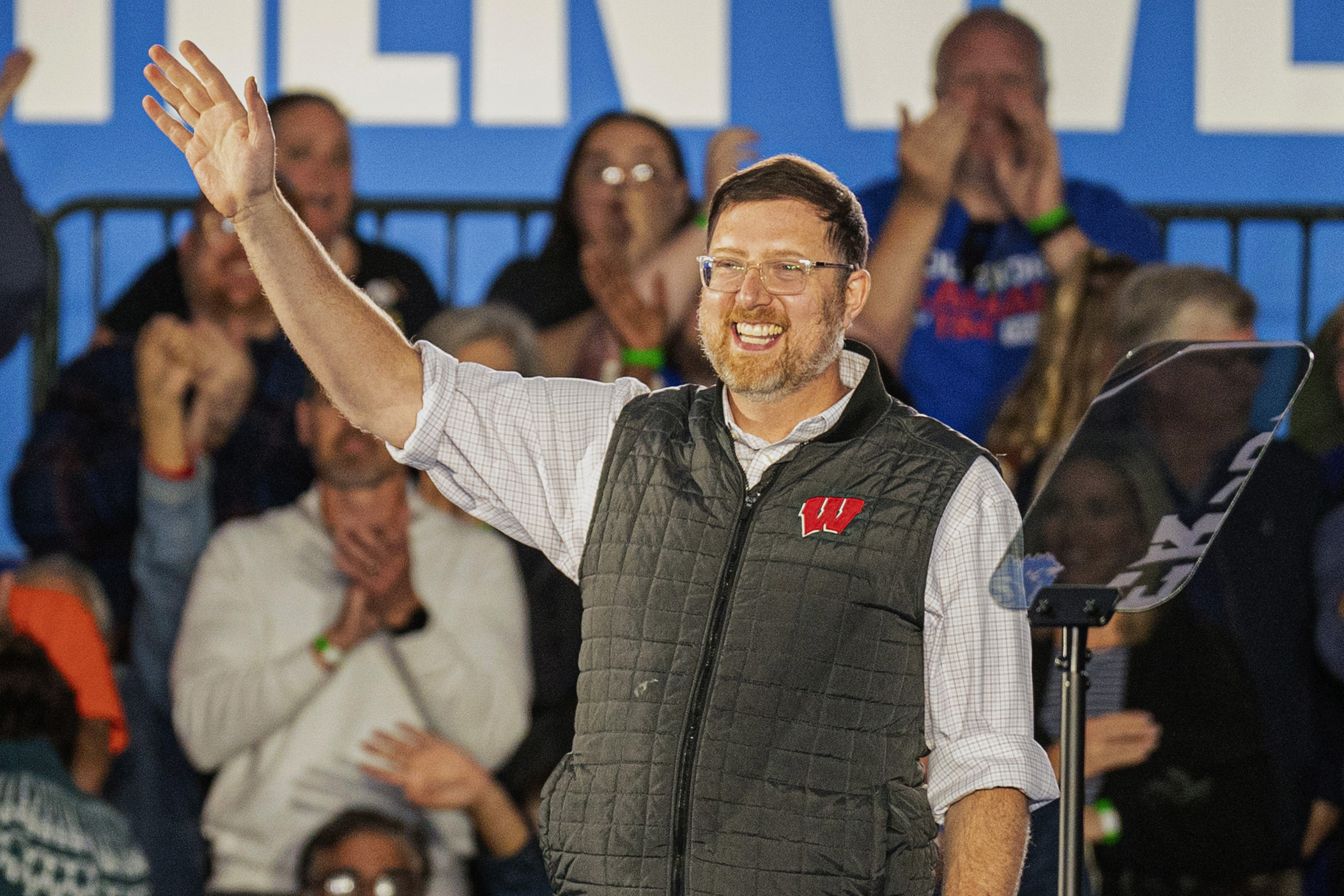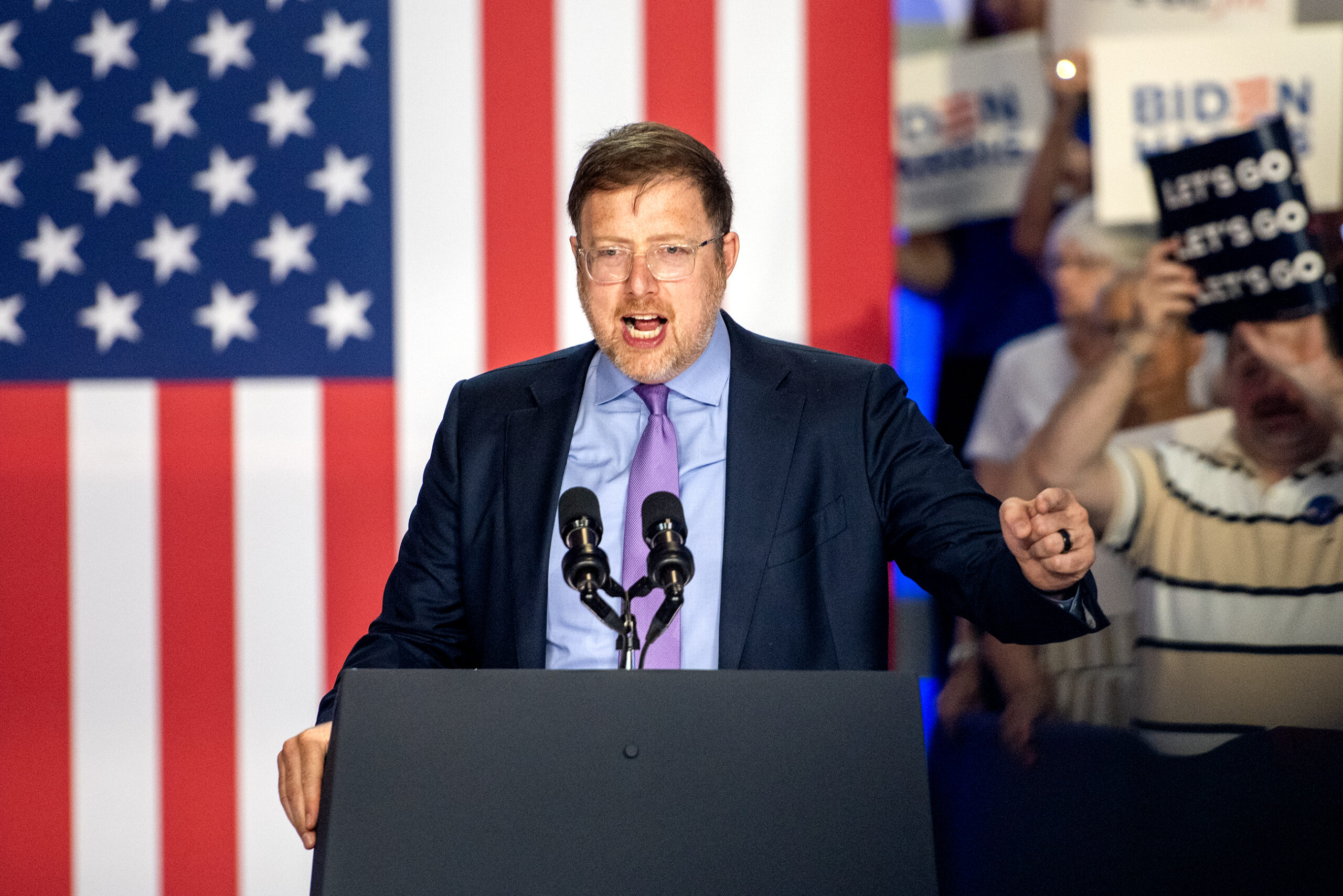Ben Wikler, who has been widely credited with tempering the scale of Wisconsin’s rightward swing in November as chair of the Wisconsin Democratic Party, will not be seeking another term leading the state party.
Wikler will serve out the remainder of his term and step down after a successor is named at the state party convention in June, he told WPR in an exclusive interview.
His announcement comes months after he lost a bid for chair of the Democratic National Committee, and as Democrats nationwide reckon with holding diminished power in Washington and the sweeping force of President Donald Trump’s second term agenda.
News with a little more humanity
WPR’s “Wisconsin Today” newsletter keeps you connected to the state you love without feeling overwhelmed. No paywall. No agenda. No corporate filter.
Wikler argued that agenda has brought the country into a “moment of crisis,” and said that his departure from state leadership is an opportunity to explore other ways of serving the party.
“I want to think through how I can contribute to communicating, to organizing, to building the kinds of coalitions that can make the difference here,” he said. “I don’t exactly know what form that will take yet, but I know that there’s more than enough work to go around to build a movement that can get us out of this moment of crisis.”
And he demurred when asked about plans to seek statewide or national elected office.
“Right now, I want to spend some time with my family and think about how we communicate and organize to contain the damage of this administration and how we lay the groundwork for something better, once the folks who are creating this crisis are out of power,” he said.

Since being selected as state party chair in 2019, Wikler has overseen a transformation of a party reeling from the 2016 crumbling of what was considered a Midwestern “blue wall” — when states like Wisconsin, long considered to be stalwart Democrats, voted for Trump over Hillary Clinton.
Over the course of three terms, Wikler turned the state party into a fundraising powerhouse. He helped raise $200 million in five years, taking advantage of a Republican-authored law that allows state parties to raise and spend unlimited political donations. That money helped to solidify former President Joe Biden’s Wisconsin win in 2020 and Gov. Tony Evers’ 2022 reelection.
The party entered new territory with big spending on state Supreme Court races, ushering in a new era of judicial spending. More recently it has campaigned not just for candidates but for ballot issues, last year helping to clinch a surprise defeat of GOP-led referendums that would have weakened a governor’s power.

Wikler was recognized for those efforts by national party figures, including Senate Minority Leader Chuck Schumer, D-NY, and former House Speaker Nancy Pelosi of California, who once described him as “Big Ben.”
His time at the helm also coincided with one of the most significant changes to Wisconsin politics in years: the overturning of gerrymandered legislative maps that gave Democrats their best shot at gaining power in the state Assembly and Senate.
But Democrats nationwide suffered a significant blow in November, when Republicans swept the national election, taking majorities in the U.S. House and Senate, and catapulting Trump back into power. They made inroads with key Democratic voter blocs, especially Black and Latino voters, and won decisively among working class voters.
Meanwhile, polling indicates that the Democratic Party is unpopular right now, with high levels of dissatisfaction among even Democratic voters.
In his bid for DNC chair, Wikler argued that Democratic policies are more pro-worker, and that his party needs to message that more clearly. He also called for a “nationwide, permanent campaign,” which he likened to what he built in Wisconsin. But he ultimately came up short, losing to his Minnesota counterpart Ken Martin.
Asked where Democrats need to go from here, Wikler told WPR his party needs to develop a better communications strategy to make their work and priorities clearer. And he argued they’re at an “inflection point” that could lead to wins in the midterms.
“Everyone who gets involved at this moment can make a gigantic difference,” he said. “Making that difference will be something people are proud of for the rest of their lives.”
The ‘Wisconsin Model’ after bruising November losses
Last summer was a seismically strange one in politics. The presidential race was upended after Biden dropped out of the race three months before Election Day. At the time, Wikler expressed unwavering support for Biden’s record.
Days later, he was introducing former Vice President Kamala Harris as Biden’s successor candidate at her launch event outside of Milwaukee, and he was on the stage throughout her numerous visits to the state over the ensuing three months.
Harris went on to lose in every major swing state — but she lost the least in Wisconsin. While the national electorate swung Republican by 6 points, the Wisconsin electorate swung right by 1.5 points.

In the temperature-taking days that followed, Wikler pointed to the relative scale of his team’s loss as evidence of a strong ground game that had been in place since long before Harris took the top of the ticket. He also pointed to the narrow reelection of Democratic U.S. Sen. Tammy Baldwin in the same race as evidence of fighting strength.
That “Wisconsin model” also fueled a paradigm-shifting court campaign in 2023. Wikler’s Dems spent a then-unprecedented $10 million supporting Janet Protasiewicz’s campaign for Wisconsin Supreme Court, in what turned out to be a successful bid that flipped the court to a liberal majority for the first time in 15 years. That victory was heralded as a likely win for abortion rights and led to the court decision that allowed Evers to redraw Wisconsin’s legislative maps.
It also set the stage for what was viewed nationally as the first major electoral test of Trump’s second term: another Wisconsin court battle. The race between liberal Susan Crawford and conservative Brad Schimel once again invited unprecedented party spending — this time from both parties.

Ultimately, Crawford won decisively last week. Afterwards, Wikler argued on a press call that the victory “sent an unmistakable message: Democrats are back.”
And speaking to WPR, he argued that that win puts the wind at Democrats’ backs going forward.
“Wisconsin has built an electoral operation that can fight back even in really challenging conditions,” he said.
But the Democrats’ bruising losses last November have empowered Republicans in Wisconsin and nationwide, who argue they received a mandate at the ballot box.
In Madison, GOP leaders have introduced legislation to mirror Trump’s priorities on immigration and gender issues.
And when Wikler’s name was first floated for the national party last December, some Democratic strategists told WPR they feared what would happen to the state’s progressive movement if Wikler took his talents elsewhere.
With his departure now definite, Wikler shrugs off that concern.
“I think the best time to pass the torch in an organization is when an organization is on the upswing and when it has every opportunity to succeed,” he said. “I wouldn’t be stepping away if I didn’t feel really confident that the party is going to be up for the challenges of these next several years.”
Wisconsin Public Radio, © Copyright 2026, Board of Regents of the University of Wisconsin System and Wisconsin Educational Communications Board.





